Introduction
Alexander Dugin’s attempt to resurrect what he calls a "pure" Hegel for his Fourth Political Theory (4PT) is less a philosophical revival and more a precarious house of cards—built on half-truths, misreadings, and a self-serving agenda. In his essay, Hegel and The Fourth Political Theory, Dugin claims that liberalism, Marxism, and fascism — the dominant ideologies of Western modernity — have distorted Hegel’s profound system, particularly his vision of the state as the "march of God on Earth." To correct this, Dugin positions his 4PT as the savior of Hegel’s untainted philosophy, relying heavily on Heidegger’s concept of Dasein as a philosophical crutch. Yet this crutch buckles under scrutiny — far from grounding 4PT in Hegel’s dialectic, it unmoors it from the Spirit’s unifying force, a flaw that echoes throughout his critique.
But Dugin’s project is not the noble rescue he portrays it to be. Rather, it is a flawed and disingenuous endeavor that betrays the very spirit of Hegelian thought. His critique of fascism, in particular, is riddled with historical inaccuracies and philosophical oversimplifications, including the bizarre claim that fascism was a mere puppet of capitalism. As someone deeply rooted in the dialectical tradition and informed by the works of academics like A. James Gregor, Stanley G. Payne, Roger Griffin, and the philosopher of fascism Giovanni Gentile, I find Dugin’s arguments unconvincing and his conclusions untenable. In this critique, I will dismantle Dugin piece by piece, exposing its weaknesses and contradictions. By drawing on the intellectual rigor of Hegel and the insights of scholars who have wrestled with these ideas, I aim to reveal Dugin’s project for what it truly is: not a revival of Hegel’s Spirit, but a departure from it — a retreat into relativism and ideological confusion.
The Crumbling Cornerstone: Dugin’s Misadventure Takes Root
Dugin kicks off his crusade with a grandiose accusation that sets the tone for his whole misguided endeavor:
“Hegelianism had a significant influence on all three political theories of Western modernity—liberalism (the First Political Theory), communism (the Second Political Theory), and fascism (the Third Political Theory)—but in each of the three it was fundamentally distorted, sometimes to the point of unrecognisability.”
— Alexander Dugin, Hegel and The Fourth Political Theory
He casts 4PT as the gallant knight riding in to save Hegel’s sullied honor from the ravages of liberalism, Marxism, and fascism. But this opening salvo is a house built on shifting sand — Hegel’s philosophy isn’t some delicate artifact crying out for a savior; it’s a living, breathing dynamo, fueled by the clash of opposites and the relentless march of synthesis:
“The true is the whole. But the whole is nothing other than the essence consummating itself through its development.”
— Hegel, Phenomenology of Spirit
History, for Hegel, isn’t a museum piece to be polished and preserved; it’s a brutal, bloody arena where the Spirit hammers itself into being through conflict and negation. Dugin’s obsession with a pristine, undistorted Hegel blinds him to this raw, dynamic essence — his claim that these three theories mangled Hegel’s vision is less a revelation and more a confession of his own myopia. Indeed, Dugin’s accusation of distortion is ironic, given his own tailoring of Hegel to fit a fragmented, anti-dialectical vision for 4PT, a flaw laid bare as we plunge into the fray, starting with fascism, where his distortions flare up like a beacon.
Italian Fascism: Capitalism’s Conqueror, Not Its Puppet
Dugin’s assault on fascism as a distortion of Hegel rests on a flimsy tripod of shaky assertions: Italian Fascism’s alleged subservience to capitalism, its token monarchy, and Nazi Germany’s biological racism, alongside both regimes’ failure to erect Hegel’s constitutional monarchy as the synthesis of civil society into the Volk (the people). He writes:
“The interpretation of Hegel within the context of the Third Political Theory was much closer to the original than in liberalism or communism. However, even here, Hegel’s system and his understanding of the state and people were fundamentally distorted.”
— Alexander Dugin, Hegel and The Fourth Political Theory
This is pure, unadulterated nonsense — a timid, shallow misreading that turns a blind eye to fascism’s intellectual vigor, its dialectical ferocity, and its economic rebellion against the liberal order. Dugin’s most outrageous fabrication is that Italian Fascism was a tool of capitalism or somehow subverted to its ends:
“Fascism continued the tradition of Risorgimento, started by liberal-left nationalists, and included a compromise with the monarchy and Catholicism. However, capitalism during the Fascist twenty-year period (Ventennio) was not overcome, nor was civil society transformed into a people (Volk). Hence, after the American occupation, the Italians easily reverted to the liberal paradigm.”
— Alexander Dugin, Hegel and The Fourth Political Theory
This is so flimsy it collapses under the lightest scrutiny — a historical and economic fiction that insults the very spirit of Fascism’s revolutionary ethos. Far from extending Risorgimento’s liberalism, Fascism inverted it, subsuming its bourgeois remnants into a state-driven ethical order. The Risorgimento’s liberal nationalism — Mazzini’s republican dreams, Cavour’s parliamentary monarchy — aimed for unification under individual rights and democratic ideals; Fascism radicalized this into a totalitarian negation, crushing liberalism’s core. Mussolini himself torches Dugin’s notion with righteous indignation:
“The Fascist conception of life stresses the importance of the State and accepts the individual only in so far as his interests coincide with those of the State.”
— Benito Mussolini, The Doctrine of Fascism
Far from being capitalism’s lapdog, the Fascist state seized it by the throat, bending it to the nation’s will. The 1927 Carta del Lavoro wasn’t a polite suggestion — it was a steel-clad decree, subordinating industry to the state through corporations that welded labor and capital into a unified force under national imperatives. This wasn’t capitalism running wild; it was capitalism on a leash, harnessed to serve a higher purpose — a Hegelian synthesis that turned civil society’s chaotic greed into an ethical order.
The evidence is ironclad:
“Socialization was, in fact, the product of a maturation of trends already implicit in the earliest Fascist formulations. The trend that matured into socializations was already manifest by the time of the Second Convention of Syndical and Corporative Studies, held in Ferrara in May 1932. Its substance was provided by the persistent socialist and anti-bourgeois biases of radical syndicalism conjoined with the totalitarian pretensions of neo-idealism.”
— A. James Gregor, The Ideology of Fascism: The Rationale of Totalitarianism
By 1939, the IRI (Istituto per la Ricostruzione Industriale) gripped 80% of naval production and 50% of steel output, choking private capital’s autonomy into submission. Dugin’s snide remark about Italy “easily reverting” to liberalism post-1945 is a coward’s dodge — Fascism didn’t collapse because it was cozy with capitalism; it was crushed by the Allied war machine, its economic vision dismantled at gunpoint, not by choice. This was no mere preservation of bourgeois interests but a radical negation of civil society’s materialism, a living echo of Hegel’s words:
“The essence of the modern state is the union of the universal with the full freedom of the particular, and with the welfare of individuals.”
— Hegel, Philosophy of Right
Italian Fascism’s gradualist developmentalism, evolving from heroic capitalism to corporatism and ultimately to socialization, embodies a dialectical process that aligns with Hegel’s organic state as articulated in his Philosophy of Right, particularly through the concept of Corporations. These served as the direct and most significant inspiration for Fascist Corporatism in Italy. This is the nature of Mussolini’s Sorelian-inspired syndicalism, which, when nationalized, matches the function of Hegel’s Corporations. This reflects the lightning-like roots of the Fascist movement, Gentile’s philosophy, and the Corporate state, a rational development towards it’s republican socialism, as understood by A. James Gregor in Italian Fascism and Developmental Dictatorship. In contrast, Dugin’s claim stands as a historical lie, utterly shattered by the weight of these facts.
Corporatism: An Introduction to Fascist Economics
1. Introduction and a Basic Argument For Corporatism.
Gentile’s Hegelian Inferno
Dugin tosses a grudging nod to Giovanni Gentile as a Hegelian but shrugs him off as a half-baked effort:
“Fascist Italy largely retained the structures of economic capitalism and individualistic notions about the nature of man, characteristic of civil society.”
— Alexander Dugin, Hegel and The Fourth Political Theory
This isn’t just a misstep — it’s philosophical vandalism, a crude slashing of one of the most potent Hegelian flames of the 20th century. Gentile’s Actual Idealism is no timid footnote; it’s a roaring furnace, blazing with the heat of Hegel’s dialectic:
“The spirit is the act of thought itself.”
— Giovanni Gentile, The Theory of Mind as Pure Act
This isn’t a distortion — it’s a direct descendant of Hegel’s Absolute, where he declares:
“The state is the actuality of the ethical Idea.”
— Hegel, Philosophy of Right
Gentile’s Ethical State (Sittlichkeit) isn’t some watered-down compromise; it’s a totalizing fusion of individual and collective will, a state where the Spirit doesn’t just slumber — it awakens with a thunderous roar, subsuming civil society’s petty divisions into a higher unity. His rejection of liberal individualism is explicit, obliterating Dugin’s charge:
“The liberty of the individual is real only in the universality of the State, which is the universality of the human spirit itself.”
— Giovanni Gentile, Genesis and Structure of Society
This aligns with Hegel’s insistence that freedom is realized in the state’s ethical totality:
“The state is the actuality of concrete freedom.”
— Hegel, Philosophy of Right
The 1925 Leggi Fascistissime weren’t a gentle nudge — they were a sledgehammer, crushing dissent and centralizing power in a way that would make Hegel nod in approval:
“The Nation State is spirit in its actuality it is therefore the absolute power on earth.”
— Hegel, Philosophy of Right
Dugin’s jab at “individualistic notions” is false — Fascism didn’t coddle liberalism; it smashed it to pieces, erecting a monolith of collective purpose in its place. Gentile’s vision wasn’t a distortion of Hegel; it was Hegel’s Spirit set loose, a fiery testament to the dialectic’s power.
The Monarchy Mirage: Dugin’s Pedantic Snare
Dugin clings to a petty grievance, lamenting that Fascism didn’t crown civil society with a constitutional monarchy:
“It is noteworthy that Hegel specifically establishes the monarchy rather than simply preserving it.”
— Alexander Dugin, Hegel and The Fourth Political Theory
He points to Victor Emmanuel II’s ceremonial role under Mussolini as a glaring failure, a sign that Fascism strayed from Hegel’s path. This is Hegel seen through a funhouse mirror, a pedantic fixation that misses the forest for the trees. Hegel’s monarchy isn’t a literal blueprint etched in stone — it’s a symbol of the Spirit’s unity, a formal necessity rather than a practical mandate:
“The monarch is the individuality of the state as a whole.”
— Hegel, Philosophy of Right
Mussolini as Duce wasn’t a deviation; he was the living embodiment of that unity, a philosopher-sovereign who didn’t need a crown to wield the state’s will. This wasn’t some dusty relic preserved out of nostalgia — it was a modern titan, forged in the crucible of struggle, commanding the nation’s destiny with an iron grip. The evidence cuts through Dugin’s fog:
“Mussolini was the modern incarnation of the state’s unifying will.”
— Eugen Weber, Varieties of Fascism
“The state’s unity is realized through the leader’s will.”
— J. A. Wakefield, Thought Thinking
This principle extends beyond Italy to Nazi Germany, where Dugin’s critique falters further. In Hegel’s philosophy, the Ethical State is embodied by the Volk — the Volksgemeinschaft (National Folk Community) — which achieves self-actualization through the unfolding of self-consciousness. This process reflects the manifestation of Geist (Spirit), a dialectical harmony that mediates between the universal will, expressed by the leader, and the particular will of the masses. Contra Dugin, the Volksgemeinschaft didn’t preserve civil society but negated it, forging a Volk that Hegel would recognize as Spirit’s self-awareness. This unity becomes a dynamic force in history, where the leader, as the embodiment of the Weltgeist (World Spirit), drives the progression of freedom through the Führerprinzip (leadership principle). The Führerprinzip serves as the concrete actualization of Spirit in the world, with the Volk’s collective will finding its rational expression in the leader.
Hegel, in his Philosophy of Right, describes the state as the highest form of ethical life, where individual freedom is actualized through submission to the rational will of the community. The Nazi state exemplifies this vision: the Führer, as the leader of the Reich, channels the spirit of the German Volk, unifying the nation under a single, rational purpose. Constitutional lawyer Ernst Rudolf Huber supports this view, arguing that the rights of individual freedom are incompatible with the principle of national law, and that the individual must submit to the Führer, who acts as the judge of the Reich and expresses the supreme law. This aligns perfectly with Hegel’s belief that true freedom is found in the state’s authority, not in liberal individualism. The Führer’s leadership, extending to all areas of national life in a totalitarian manner, ensures that the Volk’s destiny is realized through the state, leaving no room for dissent or exclusion — those outside the Volk are subject to "directed self-government," as Huber noted.
This interpretation directly refutes Carl Schmitt’s claim that the Führer’s power emerges from the state’s loss of political monopoly, reducing the state to a mere "organ of the Führer." On the contrary, the Führer’s authority is not a reaction to the state’s decline but a direct manifestation of the Volk’s will, as Hegel might have envisioned. The state remains the central ethical whole, and the Führer operates within it as the embodiment of the Volk’s spirit, not as an independent force above it. Huber’s framework reinforces this by emphasizing that the Führer exists only because of the Volk, and the state is the institutional form of their collective destiny. In this sense, Hitlerism fulfills Hegel’s philosophy by creating a unified, totalitarian state where the Volk, the Führer, and the state are one — a true individual and collective will, expressed through the rational leadership of the Führer.
The Nazi idea of Volksgemeinschaft redirected the basis of identity from geographic dominion to the communal ties among the people. Napoleon styled himself not simply as the "Emperor of France" but the "Emperor of the French," emphasizing his bond with the populace. Likewise, Adolf Hitler was not merely the "Leader of Germany" but the "Leader of the German People," highlighting his role as the embodiment of their collective consciousness. This reorientation is captured in National Socialism: Basic Principles:
“Adolf Hitler has set his stamp on the word folk-community [Volksgemeinschaft]. This word is to make completely clear to the members of our people that the individual is nothing, when not a member of a community, and that the natural community is only the community of men of the same origin, same language, and same culture, i.e., the folk-community.”
“The folk-community is the natural presupposition for the existence of the whole people and indirectly, in the end, for the existence of each individual. Whoever wants to live and thrive in this world is obligated in the nature of things to orient his struggle for existence mainly toward the struggle for the vital rights of the folk-community and thus of the nation.”
“The folk-community is not spatially bounded; it includes all members of the people, without regard to residence or temporary place of abode; thus it includes also those who live outside the borders of the German state.”
— Raymond E. Murphy, National Socialism: Basic Principles
The Volksgemeinschaft represents an organic community united by ethnicity, language, customs, traditions, economy, and heritage. It finds its awakening through National Socialism, which combines the leader, nation, and state into a singular entity — a Desired Harmony. Within this framework, every German — regardless of class, social standing, residence, political affiliation, or citizenship — is bound together. Each member has an implicit duty to obey the will of the Volk, embodied in the Führer through the Führerprinzip. Consequently, the social obligations of the Volksgemeinschaft guide the economic and personal decisions of Germans worldwide, demanding loyalty to its principles irrespective of location. This is pure Hegelianism and finds parallels in Italian Fascism, such as the efforts to bind Italian Americans and the Free State of Fiume to the Duce.
Mussolini, like Hitler, did not merely rule over the state — they embodied its essence, channeling the Spirit in a manner consistent with Hegel’s dialectic. Dugin’s obsession with a constitutional monarchy is a petty quibble, a distraction from the real triumph: Fascism’s totalitarianism didn’t betray Hegel’s Spirit — it unleashed it, forging a unity that transcended the trappings of royal pomp and circumstance. Dugin’s pedantry doesn’t stop at monarchy — he doubles down with a legalistic quibble that unravels his own philosophy.
Dugin’s Legal Restraint Critique and The 4PT’s Contradiction
Dugin sneers at Fascism’s supposed legal flimsiness, branding it a betrayal of Hegel’s vision, and zeroes in on Mussolini’s undefined role and Hitler’s refusal to restore a monarchy or enshrine his dictatorship in constitutional amber.
“True power lay in the hands of Benito Mussolini, whose role was not dogmatically and constitutionally clearly defined.”
“His [Hitler’s] dictatorial powers and charismatic status as ‘Führer’ did not receive full legal and constitutional development—despite significant theoretical developments in legal and constitutional models by German philosophers, especially Carl Schmitt.”
— Alexander Dugin, Hegel and The Fourth Political Theory
He postures that Hegel’s rational state demands a legal scaffold — a constitutional monarchy as its crowning glory — to cradle Spirit’s ethical order, insisting:
“However, Hegel’s main idea was the conscious establishment of a constitutional monarchy by civil society through overcoming itself. The monarchy was a principal moment here, as the singular monarch occupied the top of the hierarchical state, replacing the liberal triad of powers—judicial power.”
— Alexander Dugin, Hegel and The Fourth Political Theory
But this legalistic fetish is a gaping wound in Dugin’s own philosophy, which festers with the Russian tradition of Bezpravie (lawlessness) — a primal ethos that spits on rigid legalism, exalting the sovereign’s unbound will instead.
“The West imposes its rationalist order, but Russia’s destiny lies in its rejection of this artificial legality for a deeper, existential truth.”
— Alexander Dugin, The Fourth Political Theory
From Ivan Thr Terrible’s blood-soaked Oprichnina to Stalin’s merciless purges, Russia’s might, in Dugin’s warped gaze, springs from shredding legal codes for a raw, sovereign will — a metaphysical middle finger to Western rationalism he can’t stop worshipping elsewhere.
Yet here he demands Fascism and Nazism bow to Hegel’s Philosophy of Right (§273-320), where the state’s rational will dons legal garb — a demand that slams headlong into his own Russian-drenched 4PT. The irony drips like venom: Dugin misreads Hegel’s monarchy as a static legal cage, when it’s a living symbol of Spirit’s unity — Mussolini’s Duce and Hitler’s Führer didn’t grovel under legal straitjackets — they were Hegel’s Spirit incarnate, sovereigns who crushed civil society’s petty rules to meld Volk and state together — Gentile’s Ethical State roared through the Leggi Fascistissime’s brute force, not parliamentary prattle, while Nazi theorist Ernst Rudolf Huber crowned the Führer supreme:
“The Führer is the supreme judge of the nation; his will is the ultimate source of law.”
— Ernst Rudolf Huber, Die Rechtsgestalt des Reichs,m
“Judge” isn’t some petty courtroom scribe — historically, it’s a sovereign, a king, from biblical warlords to medieval tyrants, forging law with an iron fist, not reciting a rulebook — this isn’t Hegel’s Spirit warped — it’s Hegel’s Spirit set ablaze, the leader’s sovereign will melding universal and particular in a dialectical inferno, free of legalistic shackles — Dugin’s treasured Russian lawlessness — where the leader spawns the legal order, not the reverse — roars loudest in Fascism’s and Nazism’s contempt for formal restraints, not in 4PT’s limp, multipolar farce — his critique doesn’t merely collapse — it’s a self-inflicted disembowelment: he curses Fascism for rejecting the legalistic husk his Russian soul despises, exposing a rift between his hollow Hegelian veneer and the autocratic heartbeat he craves — Dugin’s no savior of Hegel — he’s a fraud, groveling at the altar of constitutionalism he claims to scorn. Dugin’s yarn about German Hegelians — Binder, Larenz, Dulckeit — dragged into twisting Hegel’s Volk to fit Nazi racialism is a delusion; their legalistic leash, not race, was the true distortion, one the Third Reich shattered to unleash Spirit’s primal force — Nazism didn’t betray Hegel’s moral Volk with the race — it exalted it through a sovereign will Dugin’s Russian lawlessness should hail, not lament. While the 4PT stumbles in a fog of legal fetishism, Fascism and Nazism surge as Hegel’s truest heirs, unbound by the chains Dugin clings to against his own nature.
Nazism and Race: Dugin’s Misunderstanding
Dugin delivers his most forceful critique against Nazi racialism, asserting that:
“Biological racism… completely negates the moral nature of the state (a fundamental aspect for Hegel).”
— Alexander Dugin, Hegel and The Fourth Political Theory
He has a point — Hegel’s Volk is spiritual, not biological:
“The nation as a state is spirit in its substantial rationality and immediate actuality.”
— Hegel, Philosophy of Right
However, this is a tenuous claim that collapses under rigorous scrutiny, failing to grasp how sovereign will, having dismantled his prior legalistic framework, constitutes a Volk as the living embodiment of Spirit, not its fettered negation. His earlier insistence on constitutional monarchy as Spirit’s rational form falters here — Nazism’s racial doctrine does not betray Hegel but extends his dialectic, integrating biology into a metaphysical essence of Forms through the Volk’s conscious self-actualization and ethical struggle, rather than just a predetermined biological substrate. This is Race Idealism, not the crude Race Realism Dugin assumes. Alfred Rosenberg, a Nazi myth-maker, doesn’t just slap biology onto the table — he elevates it to a metaphysical plane:
“The race-soul is the measure of all our deeds.”
— Alfred Rosenberg, The Myth of the Twentieth Century
Far from a betrayal, this is Geist rendered articulate — Gottfried Feder excluded racially congruent yet morally deficient Germans from the Volksgemeinschaft, prioritizing ethical fidelity over genetic lineage, while Robert Ley subordinated Germans to the Authenticity of inner character — biological traits thus serve as a medium of perception, shaped by consciousness and Dasein’s existential Authenticity, not as an immutable essence. Nazi sociology backs this: thinkers like Friedrich Becker scorned liberal IQ metrics as a “supremacy of bourgeois spirit,” pushing instead for “practical intelligence” and “contextual particularism”:
“For Germans, they asked for a measurement of 'contextual particularism', 'conscientiousness' and 'actually of the character value of intelligence'.”
— Friedrich Becker, Die Intelligenzprüfung unter völkischem und typologischem Gesichtspunkt
Nazi sociology rejected this type of materialism as a western bourgeois spirit, hostile to the Volk:
“The science of ‘sociology’ has been discredited in Germany because in the past, its name has often covered either ‘inessential thinking’ (Geistreichelei) or the influx of Western thinking hostile to the Volk.”
— Karl Heinz Pfeffer, Die deutsche Schule der Soziologie
The leadership principle, the sovereign will’s unification with the Volk’s ethical life, establishes this as a Sittliches Gemeinwesen (moral community), propelled through the conflict of history toward the World Spirit — legalistic formalism obstructs this dynamic unfolding — Dugin’s valorization of Russian lawlessness, his rejection of artificial legality, ought to affirm this sovereign mediation of Geist, yet he recoils, ensnared by the very liberal constraints he claims to eschew — scholarly insight further exposes his oversight:
“The Volksgemeinschaft was the core of Nazi ideology.”
— Rainer Zitelmann, Hitler: The Policies of Seduction
“Rosenberg’s myth was a metaphysical vision of race.”
— Peter Staudenmaier, Between Occultism and Nazism
Nazism does not negate Hegel’s ethical core — it amplifies it, race functioning as an expression of Geist’s historical particularity, not its confinement — Dugin’s categorical rejection misapprehends this dialectic, mired in a legalistic formalism inconsistent with his own philosophical premises.
Dialectical Fury: Fascism’s Hegelian Heartbeat
Dugin turns a blind eye to fascism’s revolutionary core, the very heartbeat that thumps in sync with Hegel’s conflict-driven history:
“The history of the world is none other than the progress of the consciousness of freedom.”
— Hegel, Philosophy of Right
Fascism didn’t tiptoe around civil society’s mess — it smashed through it with a vengeance:
“Fascism is a revolutionary movement of national rebirth.”
— Roger Griffin, The Nature of Fascism
The March on Rome in 1922 wasn’t a polite parade — it was a dialectical thunderclap, toppling liberal weakness. Nazi Gleichschaltung (coordination) in 1933 didn’t ask permission — it seized power, forging order from chaos with ruthless precision:
“Fascism’s aim was the total integration of society into the state.”
— David D. Roberts, The Totalitarian Experiment In Twentieth-Century Europe
Italian Fascism’s syndicalist roots birthed the corporatist state, while Nazi economic controls — like the Four-Year Plan of 1936, pushing steel output from 19.2 to 22.7 million tons by 1939 — bent markets to the Volk’s will. This wasn’t a distortion of Hegel; it was his dialectic in action, a fiery crucible where the Spirit awakens through struggle — Nazi sociology’s Volkwerdung, the Volk’s becoming, fueled this fire, rejecting materialist metrics for a living ethical unity:
“It finds its tasks, its motivation, its moral attitude, and its intellectual foundations in the renewal of the German people through the National Socialist movement.”
— Karl Heinz Pfeffer, Die deutsche Schule der Soziologie
Fascism’s relentless negation of civil society mirrors Hegel’s conflict while Dugin’s 4PT freezes history into a lifeless tableau, a stark contrast to the living clash Hegel demands.
Alexander Dugin’s Multipolarity Explained
In the post-Cold War era, the world has transitioned from bipolarity to a unipolar system, with the US emerging as the sole superpower after the fall of the Soviet Union and communism. However, unlike in the past, where states acknowledged the anarchistic nature of the global stage and pursued their own geopolitical interests, the US has maintained an i…
Marxism and Stalinism: Dugin’s Materialist Mirage
Dugin’s take on Marxism as “left Hegelianism” has a spark of truth, but it flickers and fades under scrutiny:
“The atheist and materialist Marx discards this ‘idealistic’ moment and proclaims as the first principle what was second for Hegel himself—Nature.”
— Alexander Dugin, Hegel and The Fourth Political Theory
He’s not wrong — Marx attempted (failed) to turn Hegel on his head:
“The ideal is nothing else than the material world reflected by the human mind, and translated into forms of thought.”
— Karl Marx, Capital, Vol. 1
But Dugin overblows this into a chasm when it’s more of a crack. Marx’s dialectic of class struggle doesn’t ditch Hegel’s teleology — it secularizes it, swapping Spirit for the proletariat’s march through history. Sure, Marx strips out the divine spark, but the rhythm of conflict and synthesis still echoes Hegel’s beat — Dugin’s claim of a total distortion is an overreach, missing what ties them together.
Then comes Dugin’s wilder leap — casting Stalinism and Maoism as Hegelian in practice:
“Another aspect is the refraction of left Hegelianism in historical practice. Here, it is essential to consider the historical experiences of the USSR and Communist China separately. Stalinism and Maoism, while formally built on the templates of Marxism and proletarian ideology, represented political systems much closer to Hegelianism itself in practice. Without waiting for the final victory of capitalism on a global scale and the spread of civil society, Soviet Russia under Stalin and then Communist China under Mao began to build post-civil states, where the focus was on state-building, and class theory merely facilitated accelerated (and often forceful) industrialisation and urbanisation of the previously agrarian population.
Thus, Soviet Russia and Communist China followed a path closer to Hegel and more in line with the Third Political Theory than classical Marxism.”
— Alexander Dugin, Hegel and The Fourth Political Theory
This is a pipe dream masquerading as insight. Hegel’s state emerges from civil society’s self-overcoming via gradual developmentalism, not its immediate coercive obliteration — Stalinism’s forced state-building skips this dialectical step of development, crushing civil society rather than transcending it into a post-civil society. The USSR’s Five-Year Plans (1928–1932) and China’s Great Leap Forward (1958–1962) were materialist monsters — Soviet steel production soared from 4.3 to 17.7 million tons by 1939, and Mao’s backyard furnaces churned out 11 million tons in 1958 — but where’s the ethical ontology? Nowhere:
“Stalinism aimed at industrial might, not Hegelian spirit.”
— Stanley G. Payne, A History of Fascism, 1914–1945
Stalin’s purges, claiming 700,000 lives from 1937 to 1938, and Mao’s Cultural Revolution, with 1 to 2 million dead, weren’t a lofty awakening of Spirit — they were raw, unyielding proletarian force grinding dissent into a mechanistic, materialist void. Dugin’s attempt to cast these regimes as more Hegelian than fascism falls flat; it’s a fragile grasp that buckles under the stark brutality of the evidence. If anything, it mirrors how liberal Hegelians clutch at a warped shadow of Hegel — a crack in Marxism exposed by the carnage.
Giovanni Gentile’s Criticism of Marxism
Giovanni Gentile, before his later “Philosopher of Fascism” title, eviscerated Karl Marx’s philosophy in two monographs from 1897 and 1899, a mere 14 years after Marx’s 1883 death. These early works, untranslated into English until 2017, reveal Gentile’s surgical mastery of philosophy and the era’s intellectual currents. Sharing a Hegelian lineage — Gen…
Dugin’s Exaggerated Fracture In Liberalism
Dugin splits liberalism into two camps — rejection and distortion — and piles on the drama for both. He points to Karl Popper’s outright dismissal:
“On the other hand, liberalism rejects Hegel entirely—Karl Popper sees Hegel as an enemy of the open society.”
— Alexander Dugin, Hegel and The Fourth Political Theory
Dugin is riffing on Popper here, but Popper’s view is a misfire — Hegel, like Gentile, don’t crush freedom; they say it’s found in the state. Popper sees tyranny where Hegel and Gentile plant liberty’s seed, with Dugin buying the lie wholesale!
In The Open Society and Its Enemies, Popper casts Hegel as the intellectual godfather of totalitarianism, his dialectic a conveyor belt to chains. But Hegel’s Philosophy of Right says otherwise: freedom’s real when individual will aligns with the universal through the rational state — not coercion, but culmination. Gentile’s Actual Idealism argues that ethical life blooms in the state. Popper’s blind spot is his “open society” lens; he misses how Hegel understands liberty, Hegelianism does not kill liberty. Dugin got hooked on this caricature, nor does Popper’s lie square with Hegel’s writings or his intent.
Then there’s Alexandre Kojève’s distortion, turning Hegel’s Spirit into liberalism’s “end of history,” where “the universal homogeneous state” marks history’s close. Kojève secularizes the dialectic into capitalist triumph, but he doesn’t snap it — he bends it, keeping the structure alive beneath the surface. His Introduction to The Reading of Hegel remolds the Absolute into a secular prophecy like Marx: history ends in a flat, market-driven world, master-slave tension dissolved into consumer mush — Francis Fukuyama’s blueprint before Fukuyama wrote it. Dugin calls this a rupture, a clean break, but it’s not — liberalism twists Hegel’s philosophy, no doubt, but his shadow lingers, warped yet living. Kojève’s dialectic still ticks, just fueled by liberal fumes; Dugin’s 4PT, meanwhile, trashed Hegel’s whole engine for a multipolar patchwork with no gears. Even “liberal Hegelians” like Benedetto Croce or Russia’s Chicherin wrestle with Spirit’s progression, unlike the 4PT’s abandonment of it entirely. Croce, in What Is Living and What Is Dead of The Philosophy of Hegel, keeps history’s motion alive, pruning the mysticism; Chicherin fuses Hegel with constitutionalism, the state as liberty’s scaffold, not its grave. The fracture’s there — rejection misreads, distortion remolds, like we see in Marx — but Dugin’s canyon is more like a crevice.
The Hollow Shell of a Betrayed Hegel
Dugin’s 4PT struts in as the grand solution, promising a “pure” Hegel untainted by liberalism’s individualism, Marxism’s materialism, or fascism’s nationalism, propped up by Heidegger’s Dasein and a multipolar world:
“Such an interpretation could simply be a direct following of Hegel himself, without adapting his theory to any external ideological demands.”
— Alexander Dugin, Hegel and The Fourth Political Theory
But this isn’t a triumph — it’s a hollowed-out corpse, drained of life and purpose, its multipolarity rooted in multipolar geopolitics that fractures Hegel’s World Spirit into competing blocs. I’ll bury it deep, exposing its fatal flaws one by one.
No Dialectical Unity
Hegel’s World Spirit isn’t some fragmented free-for-all — it’s a relentless drive toward a singular Absolute. The rational is seen as actual and what is actual is called rational by Hegel. Dugin’s multipolarity, therefore splinters this into a relativistic mess, a world of separate poles drifting in aimless coexistence, a far cry from Spirit’s rational culmination:
“Hegel’s philosophy demands a universal culmination, not a patchwork of perspectives.”
— A. James Gregor, The Faces of Janus
Fascism’s totalizing will — Italian corporatism welding society into one, Nazi Volksgemeinschaft binding the Volk — marches in lockstep with Hegel’s unity, the Desired Harmony, while 4PT scatters like ash in the wind. Dugin’s vision lacks the spine to pull history’s threads together — it’s a betrayal of the dialectic’s rationalistic core.
Struggle’s Absence
Hegel’s history isn’t a tea party — it’s a brutal crucible:
“The history of the world is the slaughter-bench at which the happiness of peoples has been sacrificed.”
— Hegel, Philosophy of History
Widerstreit (conflict) isn’t optional; it’s the engine, the struggle that forges the Spirit’s path. Dugin’s 4PT offers no such fire — just a limp truce among multipolar players, a world where struggle’s snuffed out for balance. Fascism, by contrast, roars with revolutionary violence — the Blackshirts storming Rome, the SA brawling in the streets — hammering the state into being through blood and iron. 4PT is a still life, a frozen tableau where Hegel demands a battlefield, a living clash to drive the Spirit forward into History.
Heidegger Mangled
Dugin hitches the 4PT to Heidegger’s Dasein:
“Hence, Dasein, the people as a moment of unfolding self-awareness of the Spirit.”
— Alexander Dugin, Hegel and The Fourth Political Theory
But he mangles it into a vague, universalist blob, a hollowed-out shell that betrays both Heidegger’s existential grit and Hegel’s dialectical fire. Heidegger’s Dasein isn’t some airy abstraction floating above history; it’s a concrete, rooted being-in-the-world, the raw existence of a specific Volk:
“Being-with is an existential characteristic of Dasein… Dasein is always mine, in each case thrown into a world.”
— Martin Heidegger, Being and Time
For Heidegger, Dasein is the pulse of a people wrestling with their finitude, their historical destiny — it’s the German Volk facing the abyss in 1933, not some faceless Narod drifting in Dugin’s multipolar haze. Fascism — Italian or Nazi — grabs this by the horns, grounding its fury in the ethno-centric heartbeat of a nation, where the leader and Volk forge a living unity through struggle. Mussolini’s Duce and Hitler’s Führer embody Dasein’s Ereignis (event) — the event of being — channeling a people’s will into a state that roars with purpose. This aligns with Nazi sociology’s Race Idealism: a Volk shaped by a Volkwerdung (living heritage). Heidegger’s 1933 rectoral address — ties Dasein to this awakening, a rejection of modernity’s alienation Gestell (enframing). Dugin’s sanitized geopolitics ignores this entirely.
Dugin’s version? A gutless phantom. His Narod (the people) of 4PT — lacks the Blood and Soil of Heidegger’s Volk, stripped of its Geworfenheit (thrownness) into a specific historical fight. Instead, it’s a shapeless, universalist placeholder, meant to fit any culture in his multipolar scheme, from Russia to Iran to China. This isn’t Dasein as Heidegger knew it — tied to the soil, blood, the language, the fate of a people — but a neutered abstraction, a name-drop without the guts to back it up. Historically, Heidegger’s Volk pulsed with the German struggle of 1933–45, backed by sociologists like Hans Freyer who saw the Volk’s becoming as a counter to Western materialism:
“The present is not a transition, but a decision.”
— Hans Freyer, Pallas Athene
Even Heidegger’s unease with Nazi biologism — critiquing Rosenberg in his Nietzsche lectures — demanded a rooted, existential Volk, not Dugin’s Russian-tinged Bezpravie. Where Heidegger’s Dasein demands Authenticity, a confrontation with Being through a Volk’s lived reality, Dugin’s floats off into nowhere, a disembodied ghost unfit to carry Hegel’s Spirit.
Worse, Dugin’s hollow Dasein severs the link to Hegel’s dialectic entirely. Hegel’s Volk isn’t a static essence — it’s Spirit awakening through history’s brutal clash, a process of negation and synthesis. Heidegger’s Dasein, in his 1934–35 lectures on Philosophy of Right, aligns with this: the people’s self-overcoming of civil society into the state is an existential act, a leap into authentic Being. Dugin’s Narod, by contrast, sits inert, a passive spectator in a multipolar standoff, devoid of the struggle that Hegel and Heidegger demand. Fascism’s Volksgemeinschaft and Corporate state pulse with this tension — individuals negated into a collective will, forged in the furnace of revolution. 4PT’s Dasein is a stillborn husk, a philosophical prop that collapses under its own weight, leaving Dugin’s “pure” Hegel a lifeless relic. Dugin’s dishonesty shines here: he cherry-picks Heidegger to prop up a multipolar fantasy, ignoring the historical reality of a Volk rooted in struggle, sacrifice, and a rejection of the very universalism he peddles.
Metaphysics: Notes on Heidegger
Moods do not arise from thinking or willing, nor do they determine our reactions or condition our responses. The mood of boredom reveals the entirety of being as a state of complete indifference, encompassing all aspects of existence, including itself. The situatedness of mood not only discloses being in its own unique manner but, far from being inciden…
Hegel's Philosophy of Right
Hegel's Philosophy of Right stands as his primary opus on ethics and politics. The objective of this work, in line with its full title alluding to natural law, is to construct a universal ethics grounded in science. It is essential to discern the distinctions between Hegel and Fascism. Notably, Fascism denounces the natural law and the conception of nat…
Conclusions
Dugin’s 4PT constitutes an intellectual retreat, a hollow evasion of the dialectical vitality inherent in Hegel’s conception of Spirit. It fundamentally misapprehends the historical and philosophical trajectories it claims to redeem. Dugin’s assertion that fascism served as a mere instrument of capitalism is historically untenable, undermined by the explicit pronouncements of Mussolini, the extensive state control exerted through the Istituto per la Ricostruzione Industriale, and the rigorous analyses of scholars. Equally fallacious is his critique of fascism’s racial doctrines as antithetical to Hegel’s framework. Far from negating the moral essence of the State, Rosenberg’s notion of the "racial soul" — bolstered by Nazi sociology’s Race Idealism and its rejection of “bourgeois” metrics — represents a metaphysical extension of Spirit, a manifestation of the Volk’s historical becoming that resonates with Hegel’s dialectical unfolding of Spirit through concrete particularity.
In contrast to Dugin’s mischaracterization, fascism — whether in its Italian or National Socialist iterations — does not distort Hegel’s philosophy but rather actualizes it with profound fidelity. It constructs the State as an ethical totality, a synthesis achieved through the crucible of struggle, embodying the dynamic essence of Spirit as the ethical Idea. This stands in stark opposition to Marxism’s materialist reductionism, which, despite its industrial achievements under Stalin, remains devoid of the spiritual ontology essential to Hegel’s system. Stalinism’s mechanistic brutality grinds forward without Spirit’s animating breath, its forced state-building a coercive detour from Hegel’s dialectical path. Liberalism, while distorting Hegel’s vision, retains echoes of his structure through its partial engagement, yet lacks the unifying force. Fascism, however, emerges as the authentic heir to Hegel’s legacy — its totalizing character and revolutionary impetus align with the dialectical progression of history, animated by the unyielding march of Spirit.
Dugin’s 4PT, by contrast, abandons this trajectory for a sterile relativism, a fragmented multipolarity that eschews the necessary conflict through which Spirit attains its realization. His appeal to Heidegger’s 1934–35 lectures on Philosophy of Right can’t salvage it; it only underscores his retreat from Hegel’s dialectical fire into a geopolitical patchwork tied to Eurasianism. 4PT offers a desiccated abstraction where Hegel’s philosophy demands a living, contentious forge. Fascism truly elevates Hegel’s torch — dialectical in its essence, totalizing in its scope, and vibrant with the historical fury of a civilization forged in strife. The ethnos, refined through this relentless process, asserts its rightful claim to Hegel’s legacy, while Dugin’s Narod disintegrates into irrelevance, a transient aberration overshadowed by the indomitable ascent of the World Spirit to the Absolute.

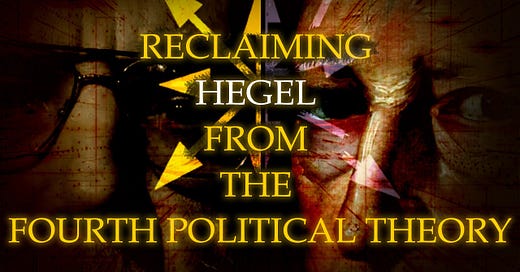




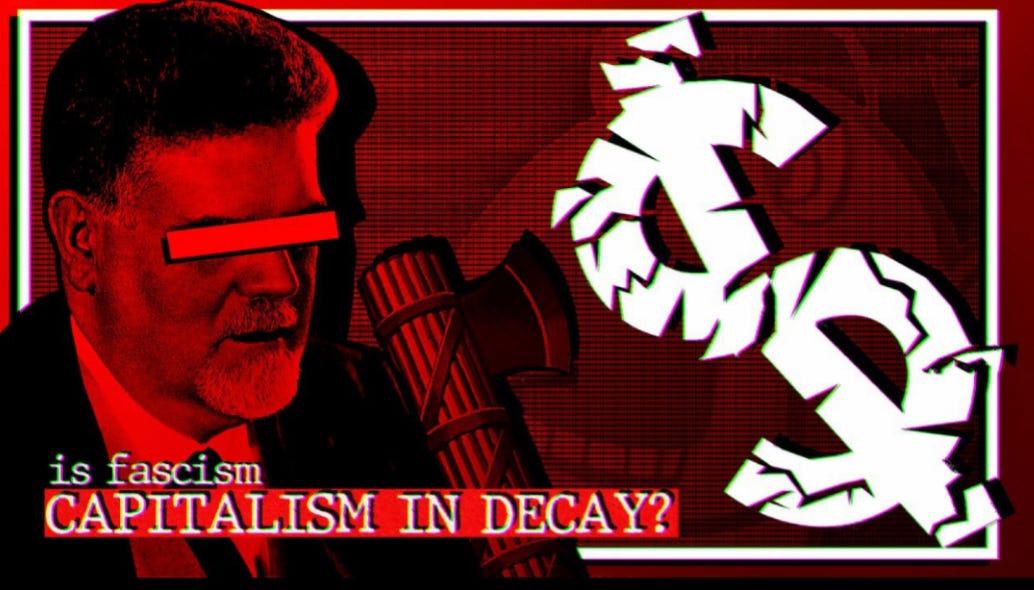
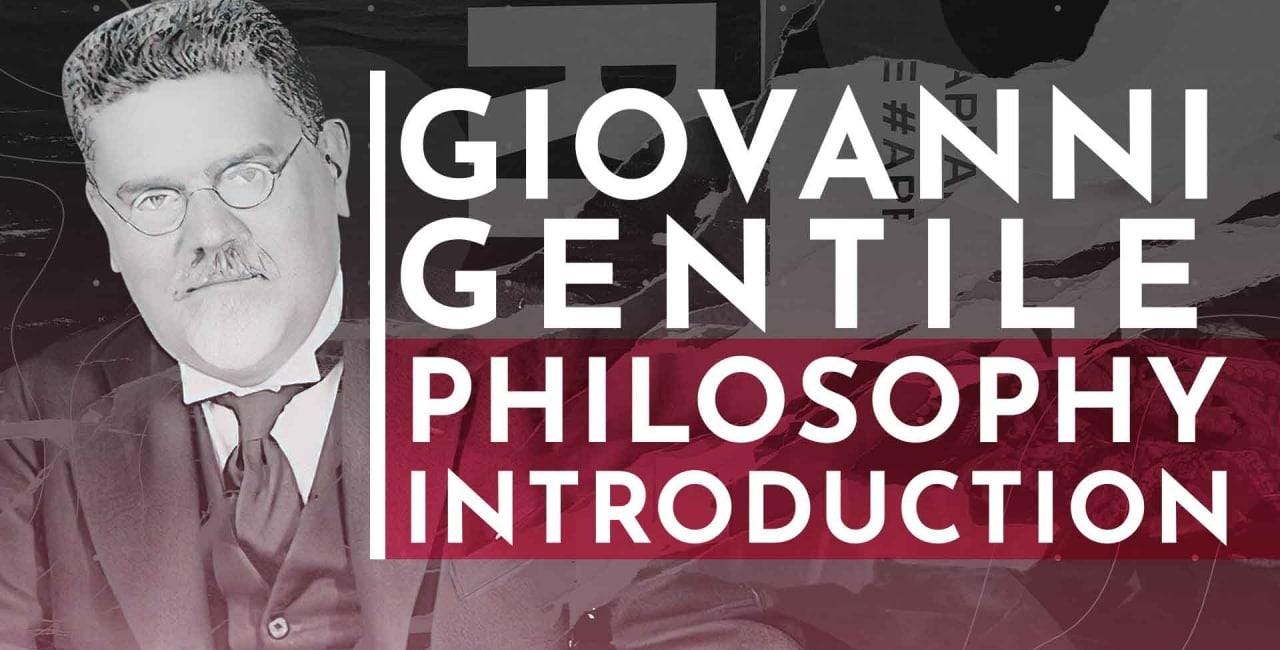
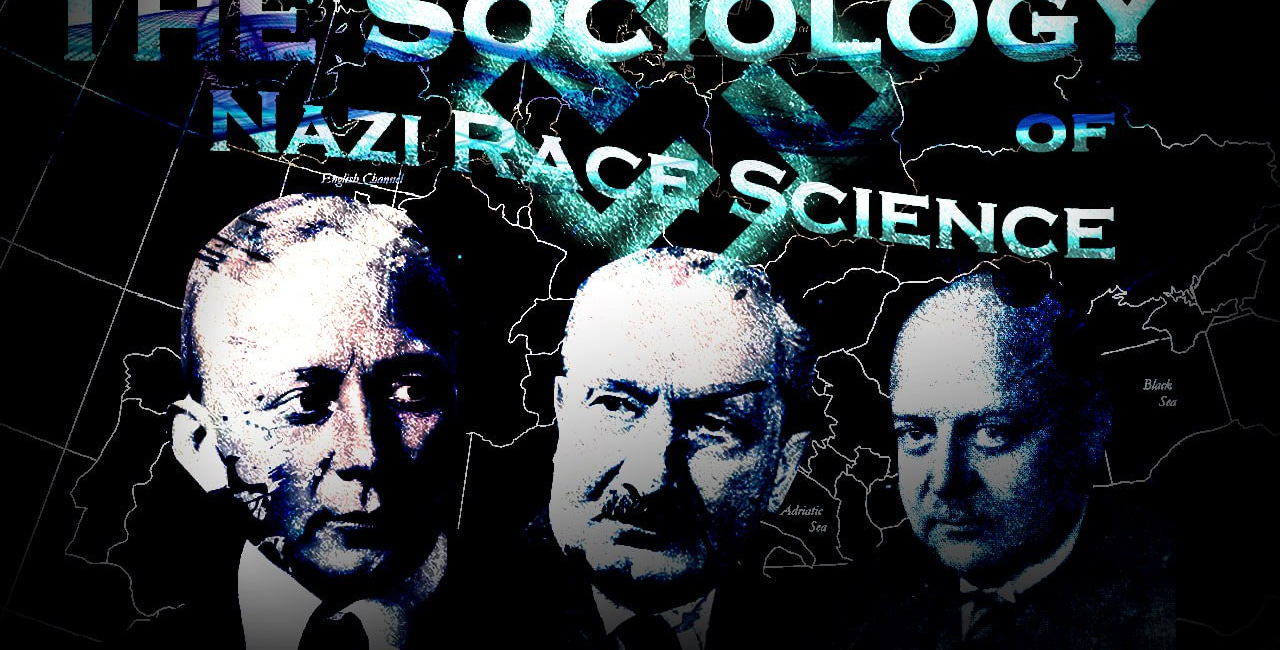
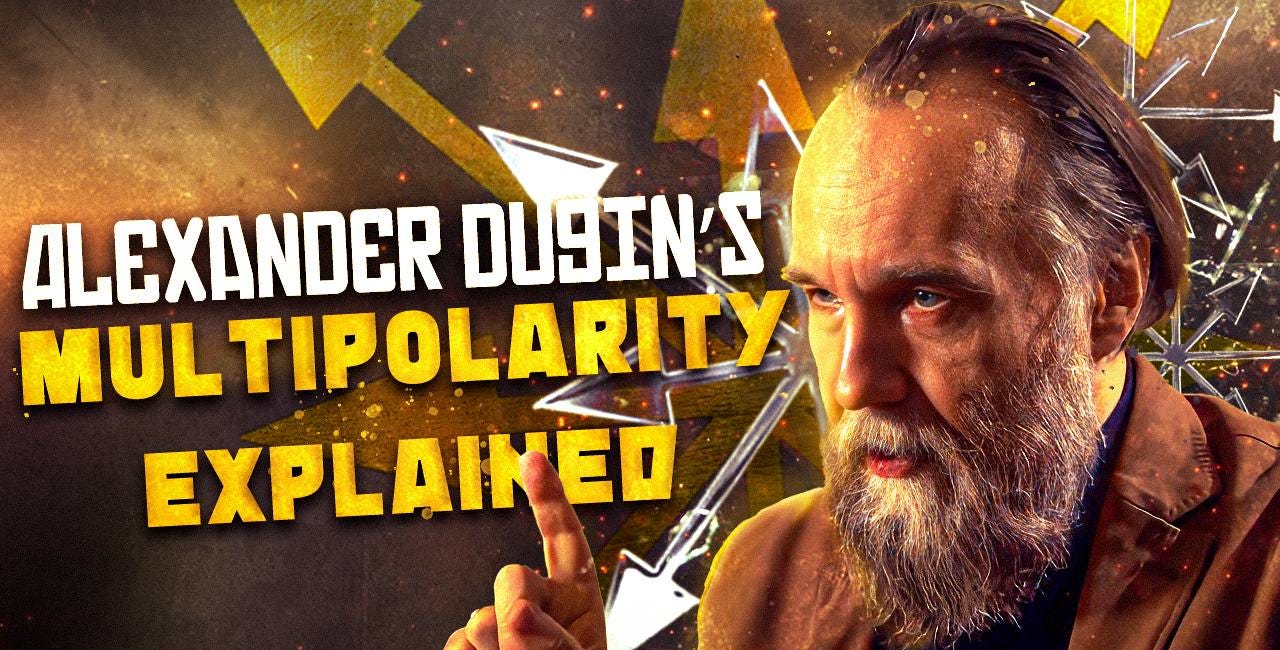
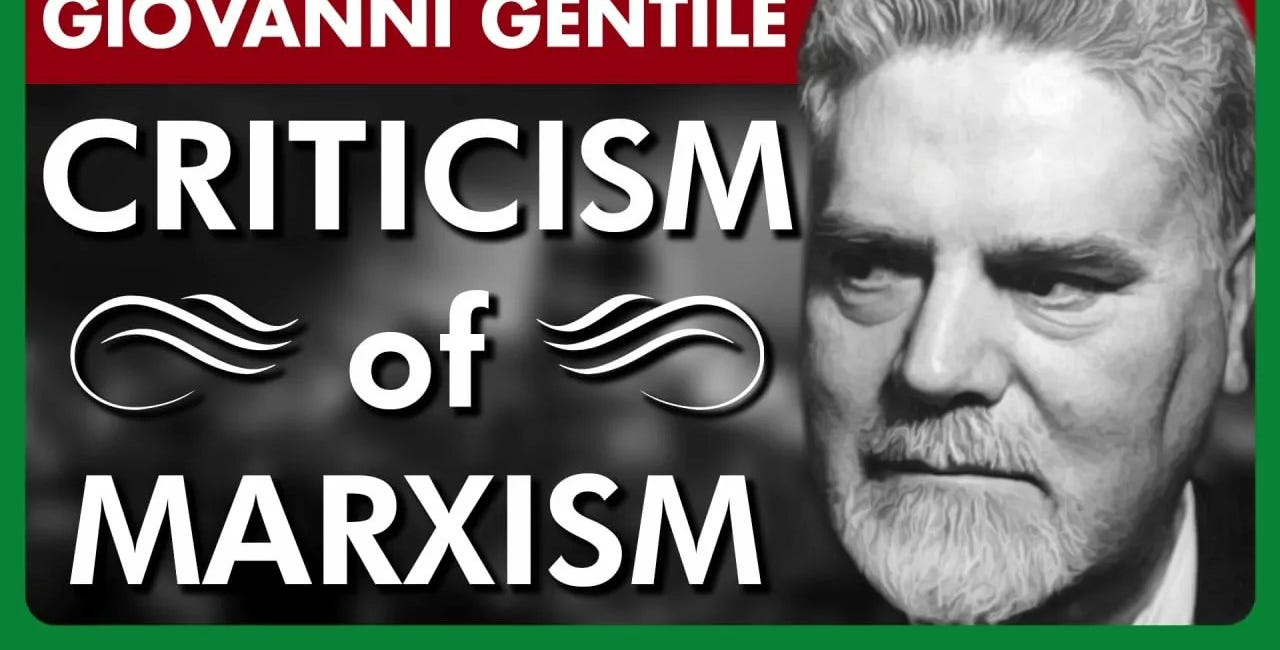

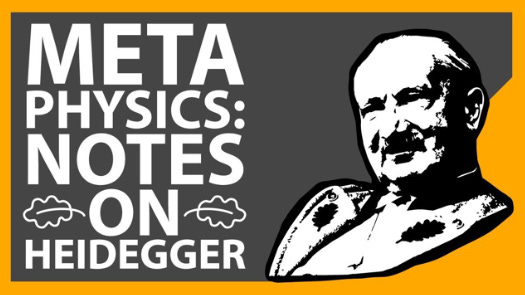
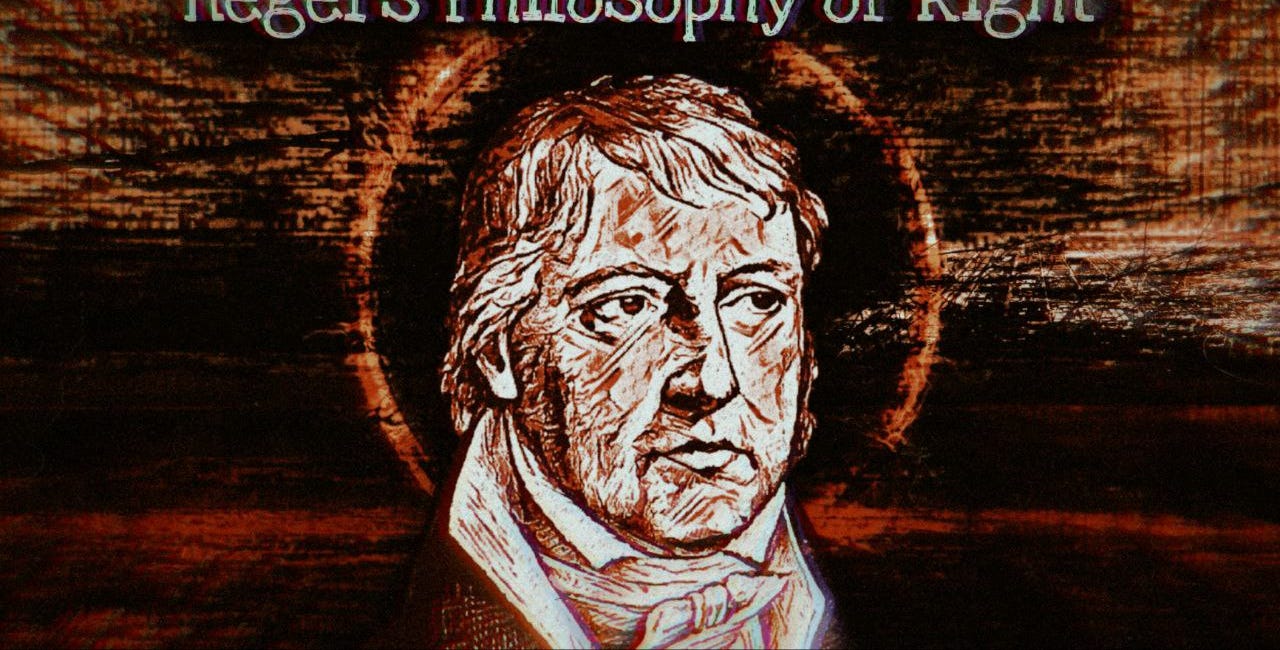
Really enjoy this thank you.